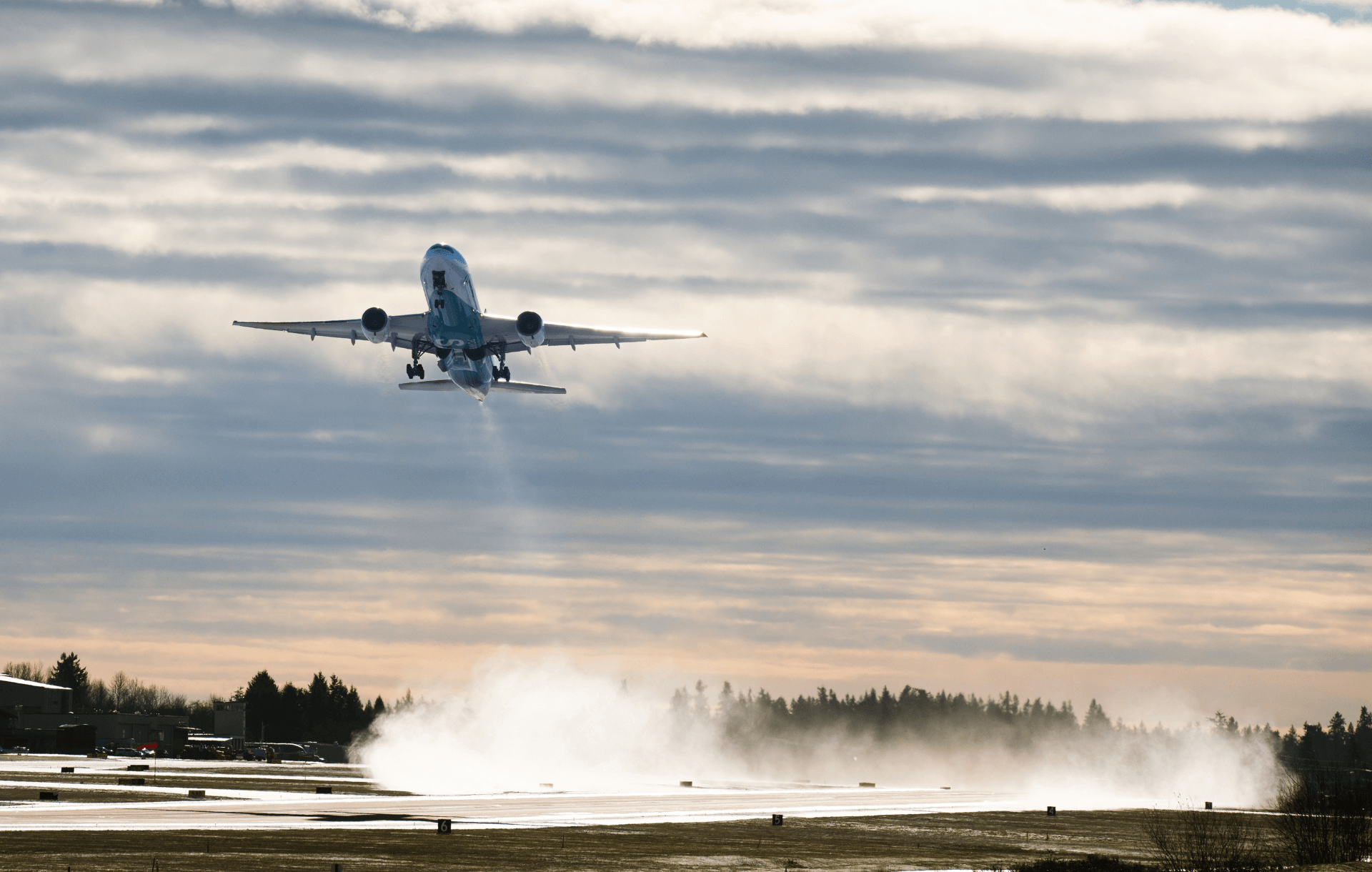Sustainability represents a holistic approach aimed at ensuring a healthier planet for future generations. In the context of aviation, it involves strategies to reduce emissions, optimize fuel efficiency and embrace renewable energy sources, thereby preserving the natural resources and biodiversity. This commitment ensures that air travel can be enjoyed by future generations without compromising the ecological and societal well-being.

The role of AI and RPA in sustainable aviation
As the calendar has turned to 2024 and we look towards the future, the aviation industry's focus on sustainability has never been more critical. The journey towards reducing emissions, improving fuel efficiency and minimizing the environmental impact of air travel is now at the forefront of industry priorities. This shift encompasses a wide range of initiatives, from adopting cleaner energy sources to refining operational efficiencies that lessen the ecological footprint of each flight.
As the calendar has turned to 2024 and we look towards the future, the aviation industry's focus on sustainability has never been more critical. The journey towards reducing emissions, improving fuel efficiency and minimizing the environmental impact of air travel is now at the forefront of industry priorities. This shift encompasses a wide range of initiatives, from adopting cleaner energy sources to refining operational efficiencies that lessen the ecological footprint of each flight.
What does aviation sustainability mean?
Why the buzz now?
The buzz around sustainable aviation practices is gaining momentum now because we’ve reached a critical point where meeting regulatory requirements and environmental goals has become imperative. By focusing on sustainable practices in aviation today, we’re securing the industry’s future. We’re also ensuring that the next generations can enjoy global exploration and the benefits of air travel.
Electric aircraft and biofuels
Recently, the conversation among aviation enthusiasts and experts has shifted towards the potential of electric aircraft, signaling the dawn of an era marked by flights that don’t emit any pollutants. Picture planes that glide through the air powered by sunlight or the energy of the wind, ushering in a future where renewable energy dominates. Alongside, the development of biofuels made from leftover materials points to a time when flying across the skies won’t depend on traditional jet fuel.
And what about AI and RPA?
The integration of AI and RPA (Robotic Process Automation) plays a main role in enhancing the aviation industry’s sustainability efforts. These technologies streamline the production and distribution of e-fuels, optimize renewable energy utilization and ensure operational efficiency through predictive maintenance and automated operations management.
AI’s ability to analyze vast datasets facilitates the identification of efficient pathways for e-fuel production and the forecasting of renewable energy availability, while RPA automates supply chain logistics and operational tasks, contributing to a reduction in emissions and operational costs.
AI and RPA also advance carbon emissions tracking and the management of carbon offset programs, ensuring the industry’s environmental commitments are met. Moreover, AI-driven research accelerates the development of innovative solutions, including new e-fuels and propulsion systems, supporting the sector’s commitment to innovation and a greener future.
The takeaway
The aviation industry is undergoing a transformative process towards sustainability, with AI and RPA being main ways to achieve environmental goals. This leads us to a version of an aviation sector where technological innovation supports sustainable practices, ensuring that we can continue to explore the skies with minimal environmental impact.
The importance of integrating RPA and AI into the aviation industry cannot be overstated. Those solutions optimize operations, reduce costs and improve customer satisfaction. They are essential tools for any company aiming to stay competitive and up-to-date with the latest trends. The adoption of RPA and AI is a clear indicator of a company’s commitment to innovation, efficiency and sustainability.
Author: Zuzanna Demska-Buszkiewicz, AI Business Lab
